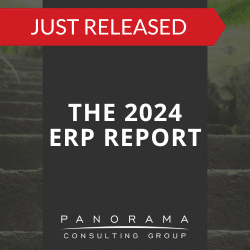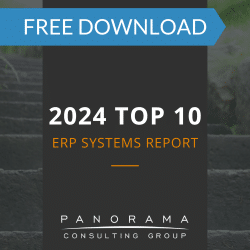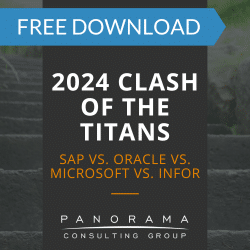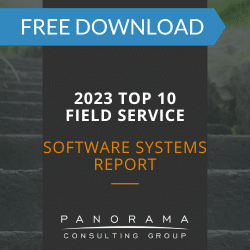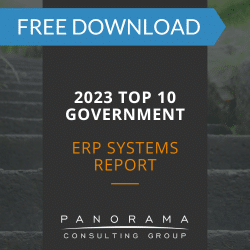Increasingly, CIOs are finding reasons to move their companies’ enterprise software to the cloud. Some are doing this to reduce costs, others to improve agility and access new cloud-based applications.
Unfortunately, cloud migration can be challenging. You have to mull over data center options, cloud solution options, hybrid cloud deployment considerations, and cloud infrastructure choices. But that’s not all . . .
In this blog post, we will discuss the top cloud migration challenges and how to overcome them.
The Future of Cloud Computing
Analysts predict that enterprise IT spending on cloud computing will overtake traditional IT spending by 2025. This trend is mostly attributed to the growing demand for greater flexibility, agility, and connectivity.
While the cloud provides the convenience of on-demand connectivity and pay-as-you-go pricing, migrating to the cloud isn’t always easy.
5 Cloud Migration Challenges and How to Overcome Them
1. Maintaining Cost Control
Cloud-related costs can quickly spin out of control. This is especially the case when departments outside of IT weigh in with changes and adjustments that can add to the overall cloud budget.
This is unappealing for any project, but it’s especially upsetting for organizations migrating to the cloud. This technology is supposed to save organizations money compared to legacy systems.
To control costs, consider creating a cloud governance program. Establish protocols that dictate how you’ll manage the project and what controls you’ll put in place to prevent costs from rising unnecessarily.
ERP Training Plan Success Story
We helped this manufacturer implement an ERP training strategy to increase user adoption of its new ERP system.
2. Managing Security and Compliance
By opening their operations up to the cloud, organizations become vulnerable to cybersecurity risks. This is an issue that IT leaders have struggled with since the technology was first introduced. As the cloud continues to grow more complex, it’s even more of a concern today.
CIOs are increasingly focused on protecting their company’s confidential data and applications. To do so, they’re migrating their data to secure access providers that offer additional security protocols, such as zero-trust service models.
While they may keep some systems running on-premises or in a private cloud, they’re using the public cloud for most of their software and services, including:
• Enterprise resource planning (ERP)
• Customer relationship management (CRM)
• Project management
• Billing
• Web-based platforms
Once your cloud systems are in place, establish a plan to continuously monitor them for security violations. In addition to scanning your entire cloud footprint, you should link the results to a centralized security management system.
One common approach is to distribute security scorecards to each team. Allow them to monitor how well their data is being protected and review the results on a quarterly basis.
3. Keeping the Project Within Scope
One of the most common cloud migration challenges is keeping a firm grip on the project to prevent scope creep. This is especially true for cloud migrations that involve multiple departments or teams.
To overcome this challenge, it is important to establish clear governance for managing change requests. This may involve creating a change review board, defining criteria for approving change requests, and setting deadlines for submitting change requests.
4. Navigating Staffing Shortages
Managing a cloud environment isn’t the same as managing an on-premises one. As CIOs think ahead to what their future cloud strategy will look like, they should focus on building a team with a diverse skill set.
Finding qualified, certified, and experienced employees to manage a cloud migration is exceedingly difficult. You need people with detailed knowledge of various cloud technology aspects, including:
• Service platforms
• Cloud architecture
• Programming languages
• Cloud analytics
• Application programming interfaces (APIs)
• Data migration
• Cloud security
One way to find this skillset is upskilling employees in cloud computing. Reskilling and upskilling are becoming the name of the game as the pace of technological innovation accelerates and more businesses dive into generative AI.
5. Achieving Leadership Alignment
While there are technical issues that could increase your cloud mitigation risks, the “people” side of the transformation can be equally challenging.
We’re not just talking about end-user adoption issues. We’re talking about getting the entire C-suite is on board.
To get there, present the benefits the cloud can provide the organization, especially in terms of cost savings and performance improvements.
Preventing Cloud Migration Failure
ERP consultants can play a valuable role in cloud migration projects. They can help businesses to:
• Choose the right cloud provider and technologies for their needs
• Negotiate favorable cloud contracts
• Prepare their data for the new cloud platform
Our software expert witnesses work closely with our ERP consultants on software failure cases, giving our consultants firsthand knowledge of common project risks. They then apply this knowledge to every selection and implementation engagement.
Navigate These Cloud Migration Challenges
While our computer software expert witness team will tell you that these cloud migration challenges are common, don’t let their candidness scare you. Our ERP consultants can work with you to create an effective roadmap to cloud adoption. Contact us below for a free ERP consultation.







